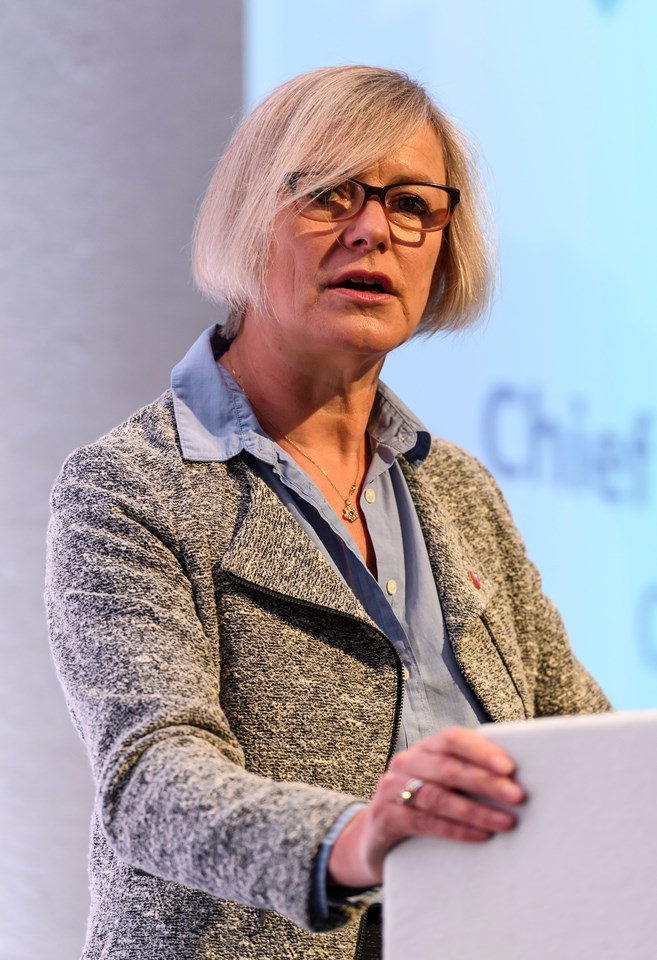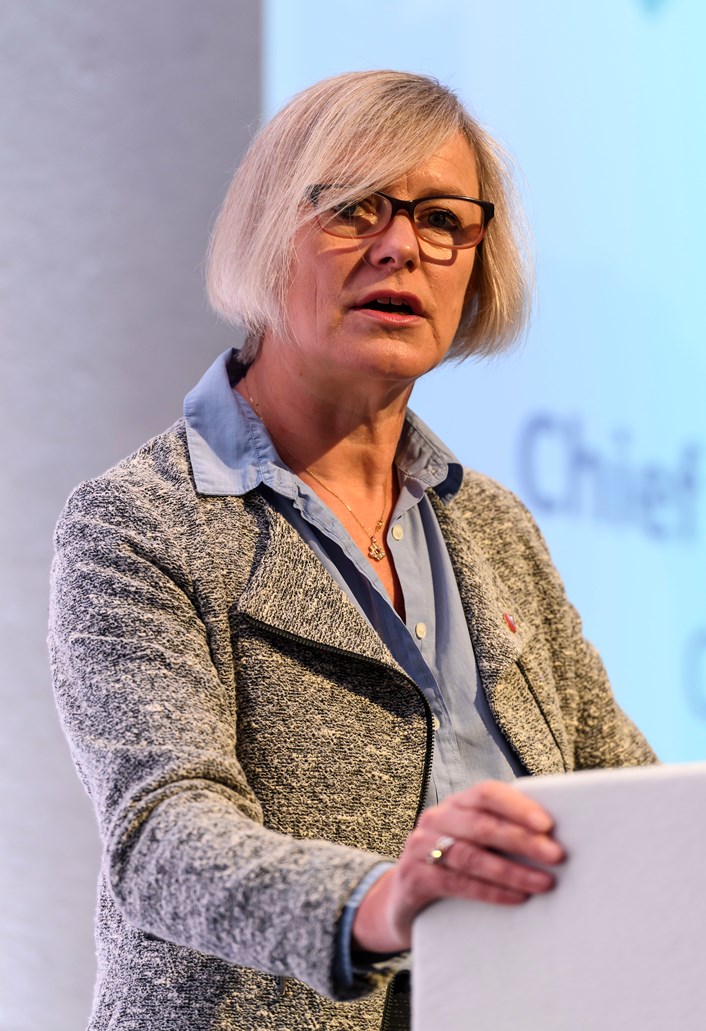
24 Jul 2018
Police Chiefs Blog: CC Sara Thornton - Chief Constables Council July 2018
Police chiefs gathered in London for July Chief Constables Council at a busy time for policing across the country. The US President’s arrival was imminent and forces were working together to support the significant national operation. The operation went smoothly thanks to the gold commanders, the National Police Coordination Centre and the many officers who travelled from around the country – in many cases delaying their rest days to support the national effort.
The hot weather, football fever and England’s success – sadly as I write football hasn’t come home – had led to real spikes in emergency calls in forces with some reporting record numbers of calls. This spike is not isolated. NPCC Lead for Local Policing CC Simon Cole talked to us the growing demand on the 999 system with call volumes up around five per cent year on year. Further analysis of data for calls to police through 999 and 101 was commissioned. If you need the police, call 999 in an emergency, look at your local force website if you need information and call 101 to report crime or concerns that don’t require an emergency response.
Flexibility for PCCs to increase their council tax precept in the last government funding settlement is enabling forces to grow their budgets between 3.6 and 1.6 per cent, which is welcome but still means tough choices about priorities. We agreed how we would work with the Home Office and police and crime commissioners (PCCs) to prepare for the next government spending review. We will jointly review demand, capabilities and resources so we can provide evidence-based submission to the Treasury to inform decisions about police funding.
Chief Constables James Vaughan and Shaun Sawyer presented progress on the merger of Dorset and Devon and Cornwall Police. If approved, the merger would see one police and crime commissioner setting one police and crime plan with one chief constable, fewer chief officers and one vision and mission. The merger hopes to deliver a more efficient and effective service to the public, savings that be reinvested in local policing and technology and a more resilient and flexible force to respond to changing demands. Next steps are consultation with staff, public and stakeholders, consideration of the full business case by the PCCs and finally a referral to the Home Office for ministerial and parliamentary approval. The majority of chiefs believe a fewer number of larger forces would be more effective operationally but making this work within the system is challenging so there is great interest in this work in the South West.
We were briefed by Deputy Assistant Commissioner Duncan Ball and National Crime Agency (NCA) Deputy Director Sue Southern on the new County Lines Coordination Centre. It will be jointly run by the NCA and NPCC and will lead our response to the criminal networks exporting drugs from our cities into smaller towns; exploiting children and vulnerable people and spreading violence as they go. Early intervention across government to tackle the root causes is absolutely crucial but so is targeted policing like this. Chiefs were also briefed about a new research centre to improve the evidence-base for police interventions to protect the most vulnerable.
Police must keep up with changes in technology because new technologies have the potential to help us prevent crime and protect people. Two forces are trialing facial recognition technology to improve policing at large events. With the Crown Prosecution Service, we have set up a group to explore how artificial intelligence and computer learning could help us sift through the vast quantities of data involved in most investigations so we can act on and disclose relevant material as early in the process as possible. But these new technologies present us with ethical challenges in ensuring we get the right balance between public safety and personal privacy. The Information Commissioner Elizabeth Denham talked to us about her role and priorities. Elizabeth made clear she expected to see full evaluation of new technologies, good communication with the public about their use in policing and the right safeguards and oversight.
We also spent time discussing the new Home Office biometrics strategy, which intends to extend and simplify the oversight and governance of biometrics, particularly developing technologies. We were told a new oversight and advisory board for facial images and new biometric technologies, chaired by Chief Constable Mike Barton, will meet this summer. The board will bring together all the relevant oversight commissioners, government, police chiefs and PCCs. It will take evidence from experts, set rigorous standards for reviewing trials and make policy recommendations. This is a complex area for policing with numerous oversight bodies so police chiefs welcomed further leadership from the Home Office in clarifying and simplifying the system and ensuring it works in the public interest.
Chiefs welcomed the new Director General of the Independent Office of Police Conduct, Michael Lockwood to Council. The role of the IOPC is really important for the health of policing and we were encouraged by the work that Michael was doing in focusing on priorities, reducing the time taken on investigations and developing a stronger emphasis on learning.
Notes to readers
We blog about the discussions and decisions at Chief Constables Council after each meeting.
Of course, there are some parts of the discussions at CCC that cannot made by public at the time of writing because relate to information that has been classified as secret.
The minutes of this meeting will be published at a later date.
If you have any questions about anything in this blog or any feedback, please get in touch. Because of the nature of the meeting and what is discussed, there may be some information requests that we cannot meet. We will always try to answer your questions as fully as we can.
Contact information
Communications office
By phone: 0800 538 5058
By email: press.office@npcc.police.uk

